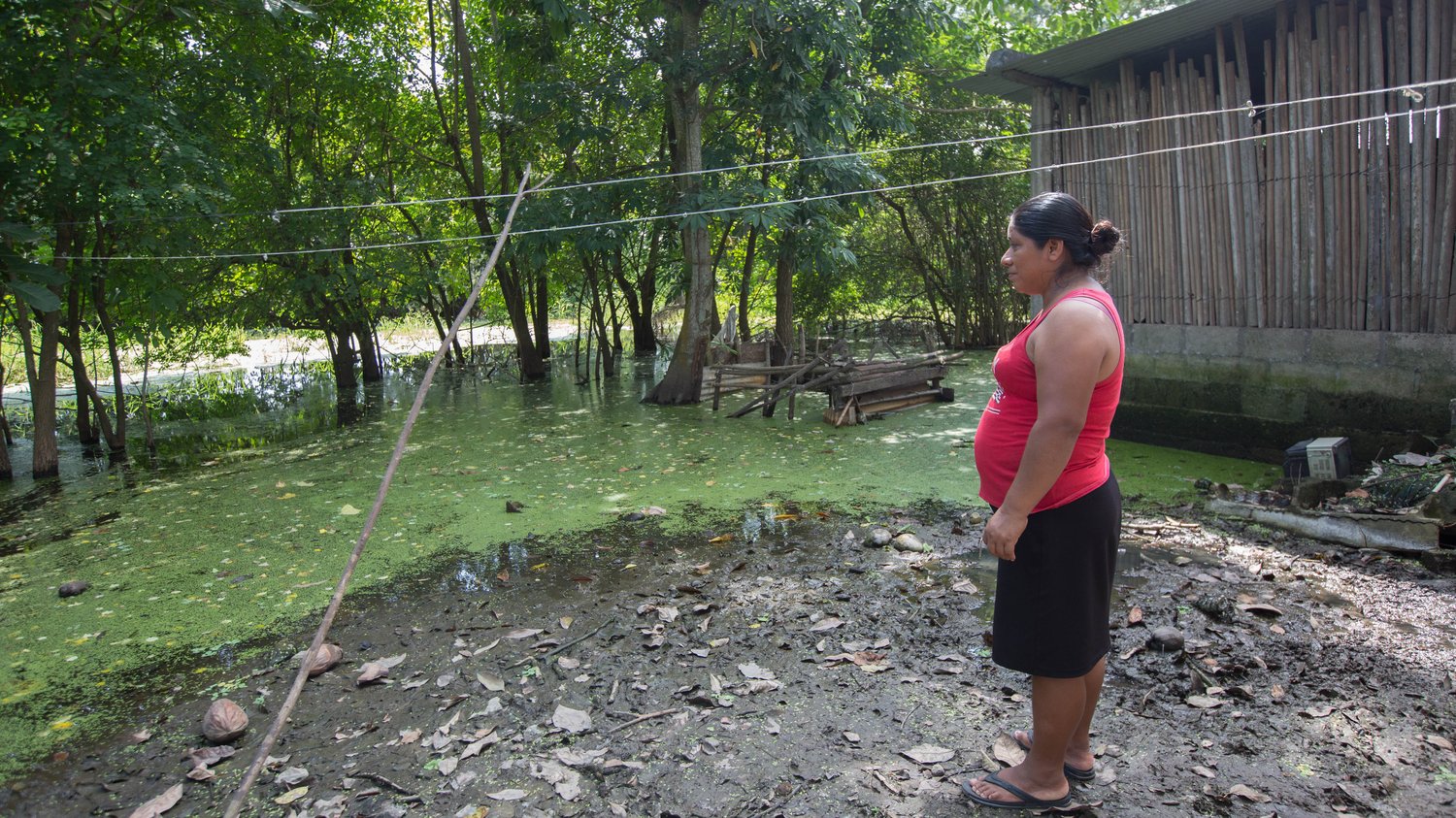www.aljazeerah.info
Opinion Editorials, December 2022
Archives
Mission & Name
Conflict Terminology
Editorials
Gaza Holocaust
Gulf War
Isdood
Islam
News
News Photos
Opinion Editorials
US Foreign Policy (Dr. El-Najjar's Articles)
www.aljazeerah.info
Climate Change Pummels Central America By Jeff Abbott December 30, 2022 |
 |
 |
|
|
The worst rainy season in decades has wiped out millions of
acres of farmland, including the crops small farmers live on, December 5, 2022 |
The Other Americans: Climate Change Pummels Central America
Small farmers across Central America are being pummeled by the effects of climate change. Their crops are being affected by changing rain patterns that are exacerbated by both floods and droughts. The multiple hurricanes and constant rains saturated soils, destroyed crops, and pushed many who were vulnerable to seek to migrate.
Guatemala is one of the countries most impacted.
The rainy season this year has been one of the worst in decades. Over 6.1 million people, roughly a third of Guatemala’s population, have been directly affected, according to CONRED, the country’s disaster relief agency. At least sixty-seven people have been killed due to incidents caused by the rainy season.
The 2022 rainy season was projected to potentially affect farmland that grows maize and bean production and exports crops like coffee and cardamom, according to the Guatemalan Ministry of Agriculture, Livestock and Food. Areas along the Pacific coast and eastern parts of the country are among the most heavily impacted by the effects of climate change, researcher Diego Incer Nuñez, who works with the University Del Valle’s The Center for Environmental and Biodiversity Studies in Guatemala, tells The Progressive.
He explains that this is related to the effects of both the La Niña and El Niño weather phenomena that can make weather conditions become more extreme.
The World Bank projects that Guatemala will be among the most economically vulnerable to climate change due to the nation’s reliance on agriculture, especially in the areas identified by Incer Nuñez. The increased effects of climate change and consistent devastating weather events have pushed many to seek to migrate in order to support their families.
The effects of climate change are being acutely felt in the small village of Las Morenas on the country’s Pacific coast. The community of around forty families sits between two rivers, the Ocosito and Pacaya, which have increasingly flooded in recent years. This year has been particularly bad, with the community flooding multiple times, most recently in September when the Ocosito River spilled over.
“The harvest was lost. Everything was lost.”
“This year has been worse than previous years,” Angélica Carreto, a thirty-nine-year-old resident of Las Morenas whose home flooded at least three times this year, tells The Progressive. “There was a lot of rain. It affected us a lot because it was raining almost constantly.”
She says she had to move what little furniture and belongings her family owns during each flood. She is still dealing with damages from the last time it flooded in September.
But the flooding also ruined crops, leaving families without means to sustain themselves. Augustina López was one of the people who lost her crops of maize and yucca that she was growing on the small stretch of land that her family farms. She will now be forced to purchase staples.
“The harvest was lost,” the seventy-five-year-old resident tells The Progressive. “Everything was lost.”
During the flooding, she was able to save the many birds she maintains, including ducks, pigeons, chickens, and a large mean turkey that would not leave her side as she spoke.
The heavy rains of the 2022 rainy season heavily impacted crops across the country, especially in eastern Guatemala in the Polochic valley of Alta Verapaz, where communities that rely on subsistence agriculture lost their crops in the floods.
As a result, the food crisis has worsened in Guatemala, which already has one of the highest rates of childhood malnutrition in the world. World Vision, a U.S.-based charity, estimates that as many as 4.6 million Guatemalans are at risk of food insecurity, representing at least 25 percent of the country’s population.
But rains and flooding are not the only seasonal problem for small farmers in Guatemala, as yearly droughts mean that farmers have no access to water to irrigate their crops or for personal use. The worst part of the dry season spans from January to March.
“In the summertime, there is no water, the Ocosito and Pacayá rivers get very small,” Carreto says. “We are entering the dry season now.”
Small farmers and communities in poverty are forced to face the extremes brought about by climate change. These extremes are worsened by the agro-industry that operates in the region.
According to Carreto and other residents, yearly droughts in their community and the surrounding area are exacerbated by an agro-business that diverts rivers to irrigate oil palm and banana plantations.
The diverting of rivers for agro-industry is common across the region, with many of the major rivers in the region disappearing, including the Suchiate River, which marks the Guatemalan border with Mexico.
In 2020, residents of Las Morenas reported that the Pacaya River had totally dried up. Four years earlier, these residents participated in a massive march to Guatemala City in 2016, organized by the United Campesino Committee and the Popular Social Assemblies, to demand the right to water. In other parts of the country, communities have also taken to destroying the dams built by agro-industry to liberate rivers.
But as small farmers in Guatemala continue to suffer, the government has done little to support or aid them. In October, Hurricane Julia swept through the country, forcing nearly 60,000 people to evacuate and damaging or wiping out hundreds of bridges and more than a thousand roads.
“Climate change affects the nutrition of small farmers,” says Incer Nuñez. “Government assistance for them to recover is very weak or scarce.”
The residents of Las Morenas suggest that they have seen no support from officials.
“There is no help, not even from the government,” says López. “They do not remember us.”
Jeff Abbott is an independent journalist currently based out of Guatemala. “The Other Americans” is a column created by Abbott for The Progressive on human migration in North and Central America.
The Other Americans: Climate Change Pummels Central America - Progressive.org
***
|
|
|
|
||
|
||||||


